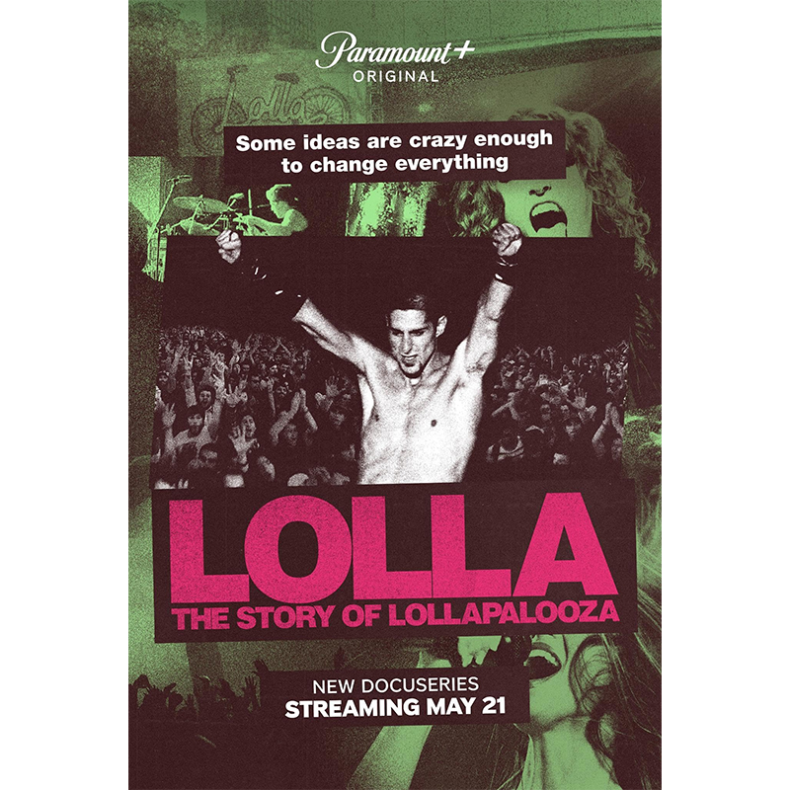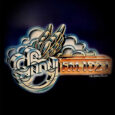LOLLA: THE STORY OF LOLLAPALOOZA
FUNMETER/C3 PRESENTS/MTV ENTERTAINMENT STUDIOS
MAY 21, 2024
The first ever Lollapalooza touring festival kicked off in 1991 as a means for the festival founder and alternative icon, Perry Farrell, to both embark on a farewell tour for Jane’s Addiction while launching his next project. While a mainstay among the modern festival circuit, the original festival stands as a cultural marker for the ‘90s, signifying what was to come in September of that year with such generational breakthroughs such as Nirvana’s Nevermind and Red Hot Chili Peppers’ Blood Sugar Sex Magik. To examine the festival, Farrell has produced Lolla: The Story Of Lollapalooza, a three-part mini-series streaming on Paramount+, featuring firsthand accounts from the likes of Farrell, Flea, Tom Morello, Ice-T and Lars Ulrich to demonstrate the continued relevancy of the festival, over three decades later.
The first episode, titled “Fuck The Man”, opens with a montage of some of the greatest artists of all styles who’ve graced the Lollapalooza stage. Even before focusing in on Jane’s Addiction, there is a momentum to the festival; this opening justifies the need for such a docuseries. Through briefly looking at the rise and collapse of Jane’s Addition, the series immediately hones in on the birth of the festival along with the innovation – a press kit printed on a lollypop wrapper – and challenges – the fact that a touring festival of this scale had never been done before – associated with this. By looking at the first Lollapalooza, the doc explores the cultural aspect that such a festival facilitated. The lineup catered to an alternative audience, one ostracised by mainstream music, while further speaking to the disillusion of Gen X. The addition of art galleries and political groups made the festival more than just a tour, and demonstrated how the festival cultivated an identity of true cultural resonance.
“End Of The Underground” follows by focusing on expanding the inaugural festival into an annual event. As the title suggests, the episode explores the parallels between the grunge and alternative boom of the decade amid the growing festival through the ’92, ’93, and ’94 lineups. In doing so, the doc hones in on bands such as the Red Hot Chili Peppers, Pearl Jam, Soundgarden, L7, Rage Against The Machine, and Beastie Boys, among many more. Through such, the series uses the artists as a means of reflecting upon the tumultuous social climate of the decade by connecting the music to issues such as police brutality, institutionalised racism, gender inequality within the music industry, and censorship, all of which contribute to the generational apathy and distrust of Gen X.
Lolla: The Story Of Lollapalooza comes to a conclusion with “Surviving Success”, an episode which sees the festival become a victim of its own growth as the decade hits its mid-point. We see the departure of Farrell in ’95, a year which saw Metallica headline in response to the ’94 lineup being too alternative, and then return the following year with the goal of broadening the sound of the festival to include electronic artists. In addition to this, we see an influx of festivals inspired by Lollapalooza emerging, creating an oversaturation within the market and the death of the subculture. The episode goes on to document how the festival would come to a close for the remainder of the ‘90s, only to make its return in 2003 where it has since found a home in Chicago.
The story of Lollapalooza is one of art against commercialization. What started as a farewell tour, quickly grew to be a curator of underground culture that has since become a global phenomenon. Lolla: The Story Of Lollapalooza documents the unintended rise of the titular festival, its artistic roots, and how it would become synonymous with ‘90s culture. By making full use of the three-episode, mini-series format, the documentary takes the extra step forward to examine the festival’s critical successes and missteps over the course of 30-plus years. In this sense, the series puts Lollapalooza in line with the likes of Woodstock for its cultural importance in relation to a particular creative era. Lolla: The Story Of Lollapalooza is a fantastic time capsule that pays tribute to not only Lollapalooza, but also the enduring power of alternative music, culture, and identity. Perhaps most importantly, however, Lolla: The Story Of Lollapalooza is a love letter to the vision, artistry, and creativity of Farrell, an alternative icon who has forever changed the music industry with one of the greatest festivals that remains a vital tastemaker that actively seeks out the underground for artists to challenge the mainstream.










